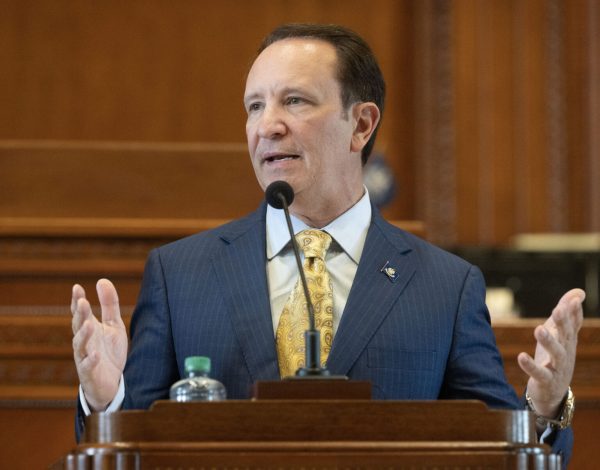Campus Sexual Violence Elimination Act to fight sexual assaults
According to a report by the state Board of Regents, Nicholls was tied with two other schools for the fourth highest number of sexual assaults in the University of Louisiana system between 2009 and 2013.
There were six sexual assaults at Nicholls in the five-year span.
Michele Caruso, dean of Student Services, explained that the counseling center on campus is extremely helpful at all post-assault stages.
“On campus, we make sure that reporting is as easy, accessible and as non-intimidating as possible,” Caruso said. “There are many people on campus trained to take reports and help victims safely make decisions and connect with appropriate resources both on and off campus.”
“No matter the circumstances, type, environment or perpetrator of the sexual assault, the victim will experience trauma, although every individual experiences it differently and to different degrees,” Caruso said.
At Nicholls, there are many safety precautions in place to prevent sexual assault, such as awareness events, bystander training, monitoring of lighting and foliage, cameras and police patrol.
If a student is the victim of a sexual assault, they can report the incident to University Police. Reporting does not require the victim to file criminal charges. Reports allow the University to provide the victim with support and to assess the level of risk to the safety of the campus. Once a report is made, the University may have an obligation to investigate or take action.
“A lot of times, victims are reluctant to testify because they do not want to relive the experience,” said Police Chief Craig Jaccuzzo.
On college campuses, as in the community, many victims choose not to report at all or only to report to service agencies and not to law enforcement.
The Campus Sexual Violence Elimination Act recently went into effect on June 20, and Nicholls has made a few modifications to its policy to comply with the law.
“As a result of SaVE, we will be implementing a comprehensive education piece for all new students and employees,” Caruso said. “We are very optimistic about the impact of this broad-based initiative. It is very positive and reinforcing of our zero tolerance of sexual assault, having the federal government initiating such laws and supporting campuses.”
The University’s overall policy, titled Policy Regarding Sexual Assault, Stalking, Domestic Violence, Dating Violence, & Sexual Harassment, can be found on the Nicholls website.
“Specific policies for students and employees are being revised as we speak,” Caruso said.
One of the changes that came about from the new law is that now, in addition to what it was already doing, University Police will keep a record of all stalking complaints, dating violence and domestic violence.
“That means we have to specifically identify how many instances we have on campus and record them in our annual crime report,” Jaccuzzo said.
The 2013 crime report will be available in October.










